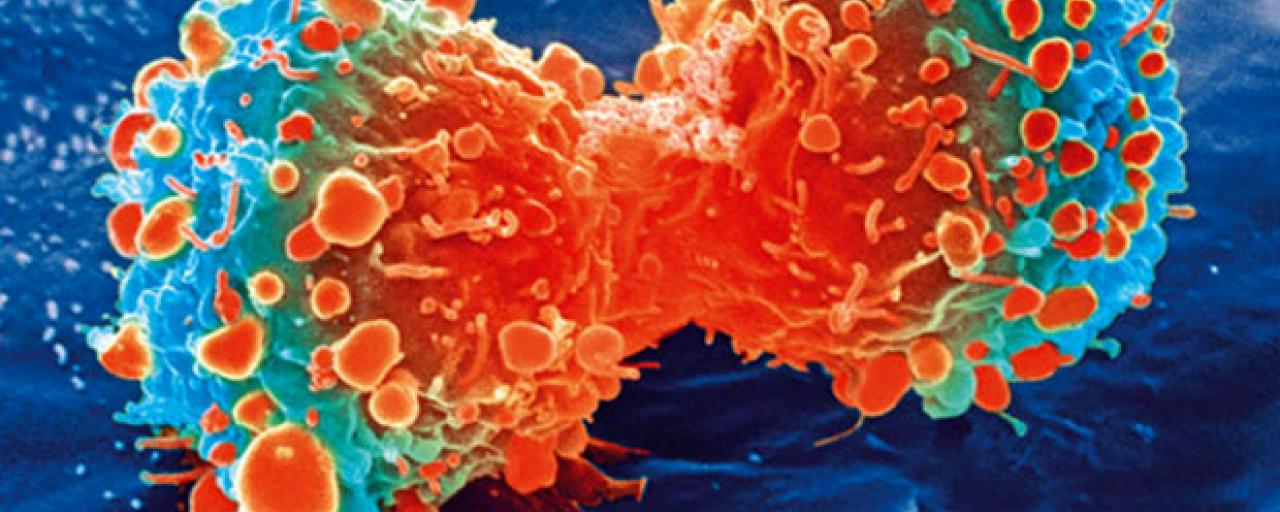
Humanity today faces incredible threats and opportunities: climate change, nuclear weapons, biotechnology, nanotechnology, and much, much more.
But some people argue that these things are all trumped by one: artificial intelligence (AI). To date, this argument has been confined mainly to science fiction and a small circle of scholars and enthusiasts. Enter documentarian James Barrat, whose new book Our Final Invention states the case for (and against) AI in clear, plain language.
Disclosure: I know Barrat personally. He sent me a free advance copy in hope that I would write a review. The book also cites research of mine. And I am an unpaid Research Advisor to the Machine Intelligence Research Institute, which is discussed heavily in the book. But while I have some incentive to say nice things, I will not be sparing in what (modest) criticism I have.
The central idea is haltingly simple. Intelligence could be the key trait that sets humans apart from other species. We’re certainly not the strongest beasts in the jungle, but thanks to our smarts (and our capable hands) we came out on top. Now, our dominance is threatened by creatures of our own creation. Computer scientists may now be in the process of building AI with greater-than-human intelligence (“superintelligence”). Such AI could become so powerful that it would either solve all our problems or kill us all, depending on how it’s designed.
Unfortunately, total human extinction or some other evil seems to be the more likely result of superintelligent AI. It’s like any great genie-in-a-bottle story: a tale of unintended consequences. Ask a superintelligent AI to make us happy, and it might cram electrodes into the pleasure centers of our brains. Ask it to win at chess, and it converts the galaxy into a supercomputer for calculating moves. This absurd logic holds precisely because the AI lacks our conception of absurdity. Instead, it does exactly what we program it to do. Be careful what you wish for!
It’s important to understand the difference between what researchers call narrow and general artificial intelligence (ANI and AGI). ANI is intelligent at one narrow task like playing chess or searching the web, and is increasingly ubiquitous in our world. But ANI can only outsmart humans at that one thing it’s good at, so it’s not the big transformative concern. That would be AGI, which is intelligent across a broad range of domains – potentially including designing even smarter AGIs. Humans have general intelligence too, but an AGI would probably think much differently than humans, just like a chess computer approaches chess much differently than we do. Right now, no human-level AGI exists, but there is an active AGI research field with its own society, journal, and conference series.
Our Final Invention does an excellent job of explaining these and other technical AI details, all while leading a grand tour of the AI world. This is no dense academic text. Barrat uses clear journalistic prose and a personal touch honed through his years producing documentaries for National Geographic, Discovery, and PBS. The book chronicles his travels interviewing a breadth of leading AI researchers and analysts, interspersed alongside Barrat’s own thoughtful commentary. The net result is a rich introduction to AI concepts and characters. Newcomers and experts alike will learn much from it.
The book is especially welcome as a counterpoint to The Singularity Is Near and other works by Ray Kurzweil. Kurzweil is by far the most prominent spokesperson for the potential for AI to transform the world. But while Kurzweil does acknowledge the risks of AI, his overall tone is dangerously optimistic, giving the false impression that all is well and we should proceed apace with AGI and other transformative technologies. Our Final Invention does not make this mistake. Instead, it is unambiguous in its message of concern.
Go deeper with Bing News on:
Artificial intelligence
- Artificial Intelligence to protect athletes from online abuse at Paris 2024
A new Artificial Intelligence (AI)-powered monitoring service will protect athletes and officials from online abuse at both the Paris 2024 Olympic and Paralympic Games this summer. Following the ...
- Artificial intelligence in banking has strong adoption by “data-first” FIs
In the rapidly evolving world of digital banking, the financial services industry stands at the cusp of a revolution, powered by Artificial Intelligence ...
- TU Graz Bundles Its Strengths in Biotechnology and Artificial Intelligence
In a multidisciplinary research project, researchers from the biosciences, process engineering and computer science want to massively increase ...
- Here's how the City of Little Rock uses artificial intelligence
Earlier this year, Little Rock Mayor Frank Scott Jr. announced that artificial intelligence would soon be used in the city. During his State of the City address back in February, the mayor did not go ...
- This Magnificent Artificial Intelligence (AI) Stock Is Now in the $2 Trillion Club
With the artificial intelligence (AI) boom in full force, investors continue to try and figure out ways to get a piece of the action. Luckily, you don't have to look very far. Alphabet (NASDAQ: GOOG) ...
Go deeper with Google Headlines on:
Artificial intelligence
[google_news title=”” keyword=”Artificial intelligence” num_posts=”5″ blurb_length=”0″ show_thumb=”left”]
Go deeper with Bing News on:
AI
- Reddit shares soar as earnings show advertising, AI licensing revenue potential
Reddit shares soared 14% on Wednesday after the social media firm floored investors with strong revenue growth and improving profitability in the first earnings since its market debut.
- Microsoft to build AI hub on previously-owned Foxconn land in Wisconsin
Microsoft said it is pouring $3.3 billion into building a data hub in Wisconsin that aims to train employees and manufacturers on how to best use artificial intelligence.
Go deeper with Google Headlines on:
AI
[google_news title=”” keyword=”AI” num_posts=”5″ blurb_length=”0″ show_thumb=”left”]










